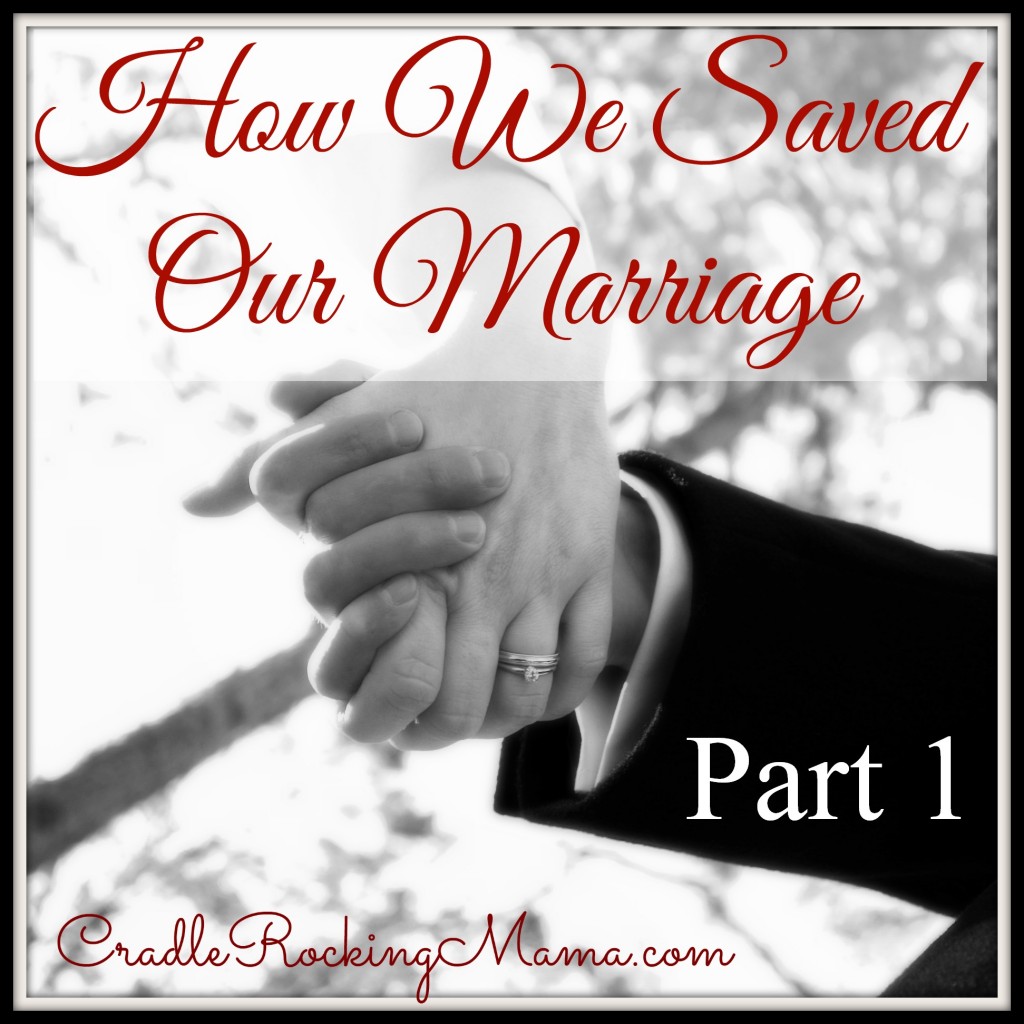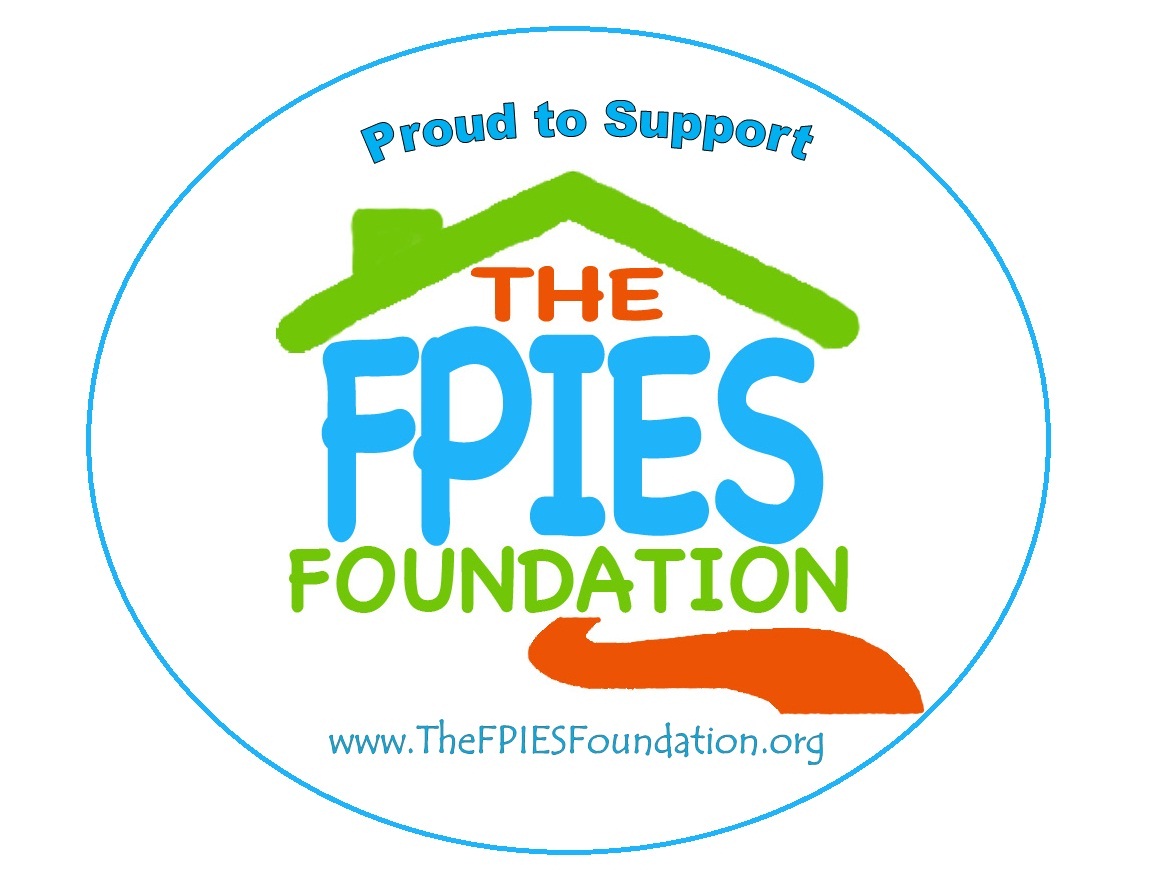Last week I mentioned that Darrel and I have had to do some serious marital work lately, so I’m going to take a slight detour from the world of FPIES and Fructose Malabsorption and share that story.
I’ve debated about sharing this for two reasons. One, because it’s not directly related to food issues, and two, because it’s very personal and private.
With Darrel’s permission and agreement, though, I decided to share because I think some people can benefit from hearing this story, and in a way, it can trace back to food issues (at least partially).
If you’re married, you surely know that all marriages have ups and downs, ebbs and flows.
That’s part of those pesky vows we make on our wedding day. “In good times and bad, in sickness and in health.”
ALL marriages go through times of great connection and passion, and times where you almost feel more like roommates who share the same name.
So, in my humble opinion, all marriages require work at some point. It takes effort to remain committed during times when your relationship…well…sucks.
Add to a normal marriage the strains of a chronic illness (or two, or three), and you’ve got a recipe for marital disintegration.
If you’ve read this blog for any length of time, you know I’m a proponent of the “bucket theory”. Usually this applies to tolerance levels of trigger foods, but it actually can apply to much more.
I’ve read relationship books that refer to this theory as a “bank account”; the general idea is that in any relationship, we make “love” deposits into the other persons “bank account”, and on bad days (or bad times) make withdrawals.
I like to keep things streamlined in my own head, so I prefer to think of it as “filling my husband’s bucket”.
If I’m pretty good at keeping his bucket full of lovey-dovey, warm fuzzy feelings for me, then on my bad days (or bad stretches), when I’m being nothing but an irritating nag, there’s a pretty deep well of love in his heart to balance out any draining I’m doing.
Of course, this works in reverse, too. Darrel has to keep my bucket pretty full so on days when I’m picking up his laundry from all over the bathroom floor (5 feet from the laundry hamper), I don’t decide I hate him.
When Darrel and I met, we had an intense connection. For those unfamiliar with the story, you should read it.
Some people say that “opposites attract”. It’s true; they do.
But they don’t often have the ability to stay together for the long haul.
Darrel and I are more of the opinion that it is the similarities that bring true closeness.
Differences add spice and interest to a relationship, but if you don’t have some very important core issues in common, the foundation will never be firm enough to withstand those rough patches.
From the very beginning, Darrel and I realized we had ALL the core values in common. Even minor things were completely simpatico between us.
And we still had enough differences to keep a little spice and interest!
Suffice it to say, our relationship had a HUGE, very full bucket of love and respect to draw on during these last two FPIES years.
I commented in our anniversary post a year and a half ago and again on our 5 year anniversary that I loved the fact that Darrel understood I needed to give 85% of myself to the boys right now, putting him last. That we both knew that one day, we could again put each other and our marriage in its proper place as the top priority in our lives, and were only back-burnering it temporarily due to the kids food issues.
That truly was always the plan. And we were confident that we had enough love and good-will deposited in each others buckets to survive until that day came.
Here’s where it gets tricky. When do you know you can start shifting the priorities around?
When dealing with a chronic issue like FPIES that has put your marriage last, when do you start to put your marriage first again?
I think we both sort of thought it would be when Zac grew out of FPIES. We’d never really defined the benchmarks for priority shuffling we were looking for.
This April, when we discovered goat milk is safe for Zac, we suddenly had the “FPIES out” we needed. Goat milk, while not a complete replacement for my breast milk, allowed us to occasionally take advantage of the grandparent baby-sitting service and spend time together.
Only, we never did.
While we’d never actually discussed when we were going to start putting some effort back in to our marriage, I think we both recognized that goat milk was the right time to start making some effort.
Since neither one of us made any efforts in that way, we both – without realizing it – started growing resentful and angry.
Now, I titled this post “How We Saved Our Marriage”, but I can promise you that Darrel and I were never bad enough to talk divorce, or even counseling. So some might think I’m being a tad over-dramatic in the title.
But I don’t really think so.
While we hadn’t trashed our marriage so badly that we were about to end it, we were in the beginning stages of habits, patterns, and thoughts that would put us directly on the path of marital destruction.
When you get a hole in the side of your boat, is it better to patch it right away? Or wait until you’re halfway – or completely – submerged before addressing the issue? Either way, you save the boat, right?
One simply has far fewer long term consequences and clean-up involved.
So yes, Darrel and I were heading down a bad path.
Sometime in the last few weeks, it came to a head. We suddenly realized what we were doing, and recognized that we really, really needed to do something about it.
We needed to figure out how to fix “us” so we would have an “us” in ten more years.
We needed to save our marriage.
And we did.
How we did it, though, is not something that can be summarized too quickly, and this post is already quite long. So stay tuned for the rest of the story. (Nothing like a cliff-hanger, right?)
Before I go on with what we did to fix things, I’d like to know: do other parents sometimes feel like their marriage has been thrown under the FPIES bus?












I truly believe that Jeremy and I have saved our marriage three times already — once less than a year after the wedding and then again within two years of each new child. If you don’t believe that divorce is an option then you have to decide at some point that “feeling” in love isn’t either and find some way to regain that “lovin’ feeling.”
Good for you! I think people forget that “love” is an action, not a feeling. I learned that doing things for Darrel makes me love him more than when he does things for me, in an absurdly perfect way! LOL And you’re right, you have to decide to fight for it. It takes effort! It’s so worth it, though. I’m happy to know my friend is in that kind of marriage. 🙂
I love your honesty Carrie! Sharing could save somebody else who didn’t know they were sinking! Been there, survived and you will too!
I know you have. I’m so glad you’ve got a wonderful marriage, now. That makes me really happy for you! 🙂
It takes two to commit to saving a marriage under extreme pressures, and it is heartwarming that you are both doing that. My marriage did not survive the stress of having much of my energies taken by caring for four sons, two with special needs.
With the care you are both giving to your marriage it can only grow from strength to strength. Sharing can help too and living in a age of blogging and emails one does not have to cope with isolation. Keep at it Carrie and be good to yourself, it is important.
All the best,
M.
Monica, thank you. I’m so sorry your marriage didn’t survive. In Part 3 I do say that you both have to be committed to saving the marriage, so you are absolutely right. My first marriage ended because of the same reason.
Just…thank you for sharing this. Wish I could hug you right now!
All my best hopes and prayers that you find the happiness you deserve and desire.
Pingback: How We Saved Our Marriage (Part 2) - Cradle Rocking Mama
Pingback: How We Saved Our Marriage (Part 3) - Cradle Rocking Mama
Hi Carrie – Wow, I read some of your previous posts – you guys have been through A LOT! I’m so thankful that you’ve been able to keep a focus on your marriage and keeping it strong, even though it has undoubtedly been very difficult.
Thanks, Gaye. It takes effort, but it’s worth it. 🙂
Pingback: Global FPIES Day 2016 -